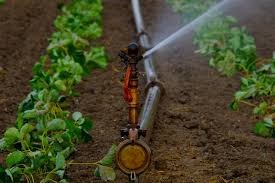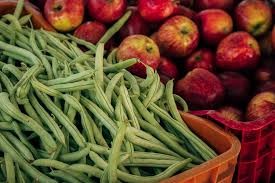Bola Ahmed Tinubu took office as Nigeria’s 16th president on Monday, May 29, 2023. In his introductory remarks, he noted that the petroleum subsidy will be eliminated starting July 1, 2023, which will increase the price of fuel in the nation and have an impact on our beloved farmers. In this article today, we will be discussing about fuel subsidies and how the effect of subsidy removal will affect food production in the country.
According to the Guardian newspaper, fuel subsidies are a kind of government intervention to lower the cost of fuel by giving direct financial support to oil corporations, and as a result, subsidize the product to consumers (https://guardian.ng/opinion/the-dynamics-of-fuel-subsidy-in-Nigeria/). As one of the biggest oil-producing nations in Africa, Nigeria has long given its citizens’ fuel subsidies. The question of eliminating subsidies for petroleum products has long been contentious. The Nigerian government provides subsidies for gasoline, diesel, and kerosene to keep the price of petroleum products low for consumers.
Impact on Transportation Costs
It is important to note that transportation plays a crucial role in getting agricultural products from farms to market. With rising transportation costs leading to increased pricing for goods and services, farmers will face higher cost when transporting their goods, leading to them charging more money. The cost of producing food would rise as a result of higher transportation expenses, and consumers would ultimately pay more for their food.

Impact on Cost of Fertilizers
The process of producing food requires the use of fertilizers. Because the extraction and processing of raw materials like nitrogen, phosphorous, and potassium are necessary for the production of fertilizers, the price of products made from petroleum has a considerable impact on the price of fertilizers. Natural gas and oil, in particular, are frequently used as feedstocks or energy sources in the manufacturing of these necessary materials. If subsidies for petroleum products were removed, fertilizer costs would rise. This spike in fertilizer costs would increase the cost of producing food, which would be passed on to consumers.

Impact on Irrigation
Nigeria’s commercial agriculture sector largely depends on irrigation, and these irrigation systems are powered by petroleum-based fuels like diesel and gasoline; hence, an increase in the cost of these fuels will lead to an increment in the farmers’ operational costs. The delivery of water to the fields from sources like wells, rivers, or reservoirs depends on these pumps. Fuel expenses for operating irrigation pumps are directly influenced by the price of petroleum. Irrigation costs would go up if subsidies for petroleum products were eliminated. The rise in irrigation costs would result in farmers reducing farm areas to be irrigated, which would significantly impact agricultural food production.

Impact on Storage Costs
Heating systems, ventilation, cold room, and other energy-intensive operations in storage facilities can be powered by gasoline, diesel, or natural gas and in rare cases solar power; as a result, changes in the price of petroleum can affect energy costs, which can then change the overall operating costs of storage facilities. If farmers are not able to afford the increased cost of storing their produce in these facilities, a few things are imminent; Food production would decrease, food spoilage will be on the increase, while unavoidably, food prices will skyrocket.

Conclusion
Conclusively, the removal of subsidies on petroleum products in Nigeria would have a significant impact on food production. The increase in transportation costs, fertilizer costs, irrigation costs, and storage costs would lead to a decrease in food production. This decrease in food production would lead to an increase in food prices, which would have a negative impact on consumers. The government should explore other ways to reduce government spending, such as investing in alternative energy sources, strengthening refineries and local production, and tackling corruption and inefficiencies in the country.


